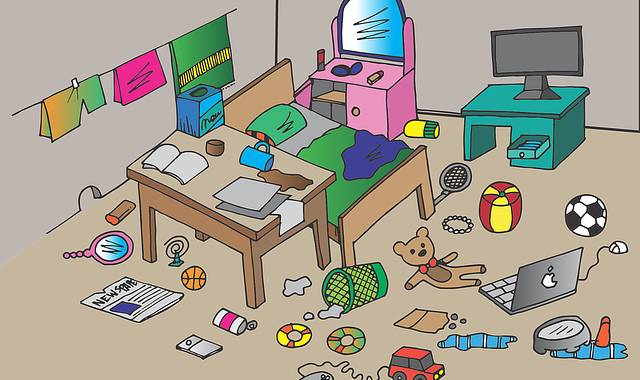
How to thrive and grow your resilience – 10 tactics
My mother was ill from the day I was born. She died of a cruel, incapacitating disease that left deep scars for me and my two brothers. My father worked seven days a week to keep us fed and clothed, but this meant that our parenting was minimal. We were three proverbial ‘latch-key’ kids. From a young age, we endured and learned to cope with our plight and largely unsupervised lives.
The upside? We didn’t know it then, but we were inadvertently building immense skills and resilience which would serve us well in our adult lives.
How are you doing in these crazy times? Perhaps you are feeling lonely, disappointed, overwhelmed, or stressed. COVID-19 is certainly testing our resilience and will, undoubtedly, be adding to the levels of stress you normally contend with. The issues confronting you may range from minor setbacks such as holidays being cancelled, right through to full blown traumatic, life changing experiences such as losing your job or even losing a loved one.
So, what is resilience and how can you strengthen it?
Resilience helps you adapt and spring back from adversity and recover more quickly from the difficulties you encounter. It affects how you behave, think, feel, act, and cope when you are challenged by negative experiences.
Resilient people find a way to change course, emotionally heal, and continue moving toward their goals
Some people are more resilient than others. Learning from a challenging or distressing situation in the past builds your resilience and help you deal with similar situations in the future.
However, irrespective of previous experiences, anyone can learn healthy ways to handle adversity and develop resilience. Here are a few ways to get you started:
1. Control
Change is inevitable. Sometimes, even though it is undesirable, the changes you encounter may be out of your control leaving you powerless to do anything about it. You can neither undo it, nor go back. Focusing on the things you can control, rather than those you cannot, will help you. Ask yourself what is in my control and what is not. Create options and actions to deal with the things that are in your locus of control. Then, adjust your current plans and goals to reflect your new circumstances.
2. Catastrophising
This happens when an undesirable situation is threatened or has happened and we assume the worst possible outcome will occur. Yet there are probably many different outcomes that might result from the situation. An example of catastrophising is when someone (e.g. your partner or child) is late home. You may immediately start to imagine the worst has happened to them when they might just be late!
If you are prone to catastrophising, cultivate the habit of thinking of all the possible outcomes, not just the negative ones. Whatever you think will not affect the outcome, but it will affect you and how you feel about the situation.
3. Break negative thought cycles
When we are at a low ebb or feeling overwhelmed, we sometimes get stuck in negative thought patterns. Typical language is what I call “if only” language. For example, “if only I had done this – or not done that…”. Of course, you may be correct in your assertion but, since there is no going back, it is not helpful to you or your situation to think this. Self-blame or blaming others is also a typical negative thought pattern.
If you notice your thoughts slipping into a negative spiral, focus on gratitude. Ask yourself, in that moment, what you are grateful for and focus on things that bring you joy. For more tips on how to think positive thoughts, check out my previous blog here
4. Find upsides to undesirable situations
This can be hard to do but some people do it naturally. Imagine someone has just been told that they did not get the job they applied for. Some people begin to craft a positive narrative for themselves saying things like, “actually, it was a much longer commute so, in a way, it is a good thing I didn’t get it. If you are disappointed by something, try to think about a good effect that has inadvertently transpired.
5. Give yourself permission
When you face an undesirable experience or event, whatever you feel, it is (initially) important to acknowledge and give yourself permission to feel it. This might be anger, distress, annoyance, disappointment, frustration, anguish, pain and so on. Once you have acknowledged how you feel, try to focus on how you want to feel and what small thing you can do today to help you move on. This is where the traditional advice to “have a nice cup of tea” comes from – I feel sure! Tea has soothed many a disappointment!
6. Contact someone you love and trust
Share your distress with a trusted friend or relative – someone who cares about you and will support you through your situation. There is some truth in the old adage, a problem shared is a problem halved. The important point here is to ask for and accept help and emotional support from people. In these Covid times, this may be as simple as a chat over the phone.
7. Small steps
Ask yourself: what small thing can I do today to help me handle this new situation? There is always something you can do. Using the failed job interview example, you might make an appointment with the recruiter for feedback, or begin searching for other opportunities.
8. Nurture your physical and mental health
Stress produces both a physical and emotional response in your body. This makes it even more important that you look after your physical and mental health when you are distressed.
Seemingly small things will help, such as going for a walk outside in the fresh air. Pets are also great comforters! Just being with your pet can be calming and levelling, especially when you take time to notice their loyalty, happiness, or antics.
Make a healthy meal for yourself even if you don’t feel like it. Make something nutritious, quick and easy like soup, baked beans, eggs, etc. Some people view bad news as a time to ‘treat’ themselves to things such as chocolates, cakes, alcohol, or cigarettes help them through the situation. This doesn’t work! In fact, it fuels further addiction and there will be a price to pay when you are feeling better!
Mindfulness, meditation and breathing exercises can help you feel calm. There is often mystique around such practices, but don’t be afraid of giving it a go. Mindfulness and meditation are not exclusively reserved for Tibetan monks! It involves bringing your attention to the present. Nowadays there are plenty of free resources on the internet to help you to practice these. Even 5 minutes a day can make a difference.
9. Write it down
Spend a few minutes writing down your deepest thoughts and feelings. This can be both cathartic and liberating. Don’t worry about grammar or spelling, focus on the issue or event that is troubling you, and how it has affected you. This technique is often used in psychotherapy and is known to be helpful.
Next, make a list of all the positive things in your life and those things you are grateful for. Recalling and appreciating the good things in your life, despite your undesired situation, will help you cope with the change in circumstances.
10. Be compassionate towards yourself
This is often easier said than done. We tend to beat ourselves up with negative self-talk. One way to avoid this is to imagine that your situation is happening to a friend rather than you. What would you do or say to help them? How would you behave? Your answers should then be applied to how you treat yourself. Being compassionate and forgiving of yourself and others can help you to let go and move on from negative emotions such as anger, blame and resentment.
We all experience traumatic situations and feel emotionally distressed at times.
Resilience does not mean having no difficulties in your life. On the contrary, it is built by experiencing challenges, heartache, pain and emotional distress just like the childhood events me and my brothers endured. Although it might not feel like it at the time, we grow and learn from such difficult experiences. Surprisingly, this is how resilience is built. And, when we are resilient, we learn to cope and move forward with our life.
For many people, embracing the strategies above will be sufficient to get them though difficult situations and help them build their resilience.
Most people adapt well (over time) to life-changing and distressing situations. However, despite the suggestions in this article, if you have experienced something distressing and feel unable to carry out your daily life activities, please do seek help from a trusted professional.
Take care!


